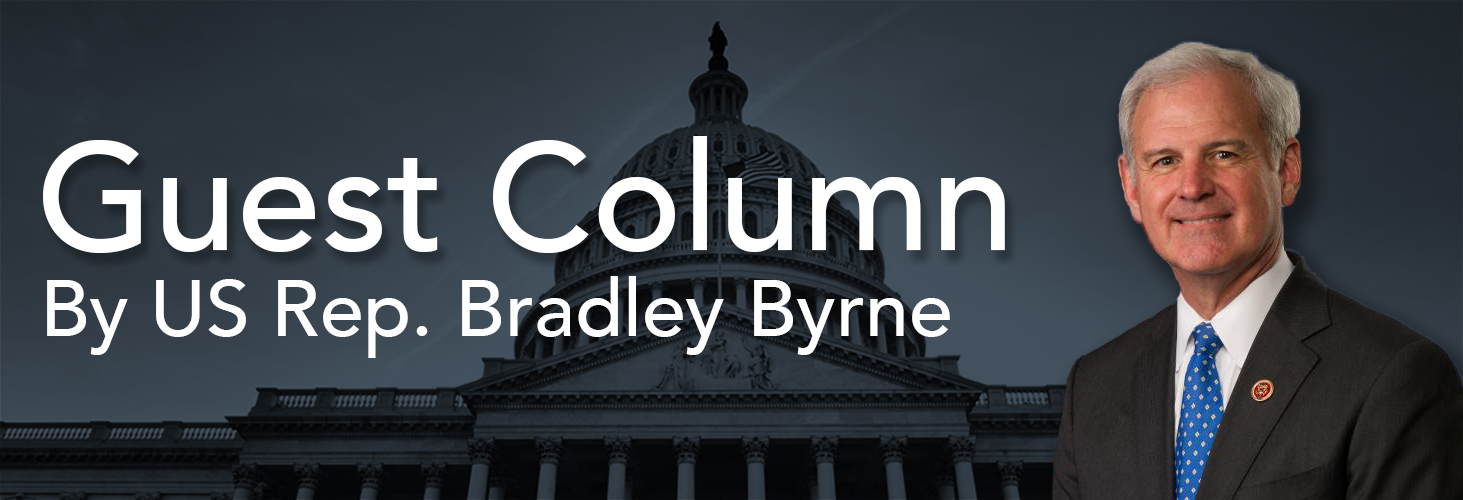By U.S. Representative Bradley Byrne (AL-1)
The summer months in Southwest Alabama can be especially grueling with temperatures resting in the 90s. If your family is like mine, summer also means higher power bills. Well, those power bills might be getting even more expensive and this change doesn’t have anything to do with the weather.
In the last few years the Environmental Protection Agency, commonly known as the EPA, has been pushing out a record number of regulations. These new rules run the gambit from costly regulations on coal power plants to attempts to regulate mud puddles on family farms to policies changing what type of light bulbs Americans can use in their home.
These new regulations aren’t cheap, and they will hit the wallets of working Americans. In fact, studies found that the EPA’s attempt to regulate CO2 emissions from existing fossil-fuel power plants would cost over $366 billion. Even worse, families in over 40 states, including Alabama, would see their power bills rise by double digits.
It doesn’t stop there. The EPA’s attempt to lower the ozone standard would result in the most expensive rule ever proposed by the EPA. If put into effect, the National Association of Manufactures found that the regulation could slash family budgets by $830 per year, reduce our gross domestic product by $1.7 trillion, and cost our economy 1.4 million jobs.
Being from around the Gulf Coast, we know all too well how important it is have clean air and water, but I don’t think the American people need costly mandates and federal requirements in order to be good stewards of our land. We should always consider the impact these regulations would have on hardworking families and the budgets of small businesses.
In Congress, I have made it a priority to focus on solutions that help lower the costs of energy and fight back against the activist EPA. A few weeks ago, the House passed H.R. 2402, the Ratepayer Protection Act. This commonsense legislation would allow states to opt-out of implementing the EPA’s rule on greenhouse gas emissions if they found that the rule will have an adverse effect on families in their state.
The House is also using the appropriations process to rein in the EPA. Since Republicans took control of the House in 2010, the EPA has been cut by around 15%, but I think we can make even more cuts. This year’s funding bill for the EPA, which is being debated in the House this week, is $1.17 billion less than President Obama requested.
The funding bill also includes provisions to prevent the EPA from moving forward with many of their regulations. Analysts say that by halting these new regulations, our legislation will save nearly 300,000 jobs related to the energy sector. Our bill also rejects efforts to place more requirements and red tape on new energy projects.
Congress and the Legislative Branch aren’t the only ones fighting back against the EPA’s overreach. A few weeks ago, the Supreme Court ruled against the EPA in a major court decision. In the ruling, the Supreme Court said that the EPA has to consider the economic impact when issuing new regulations. This was a major victory for all of us who believe














































